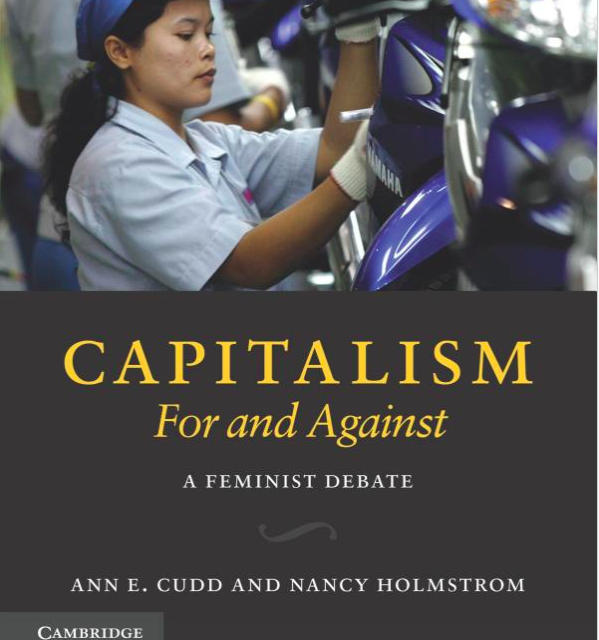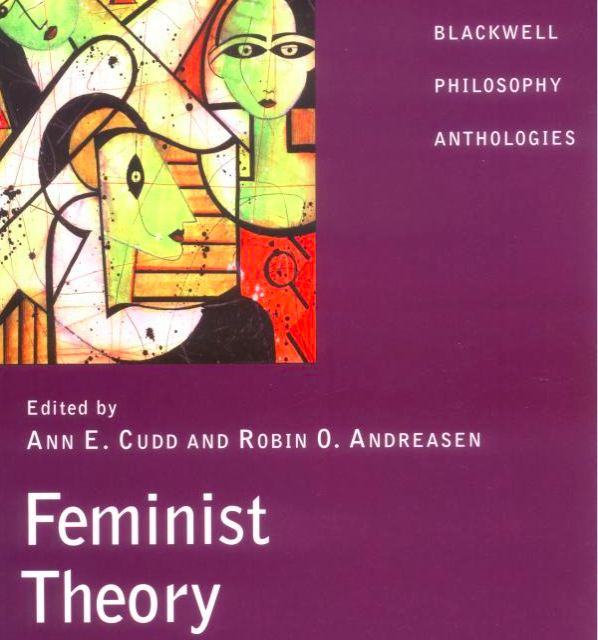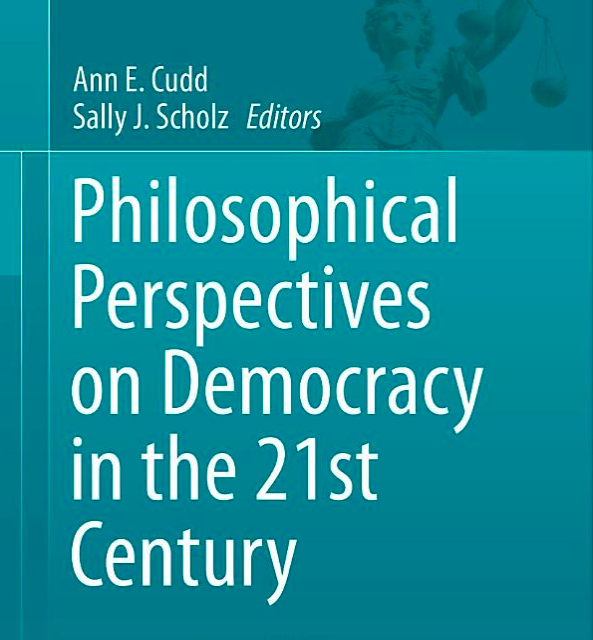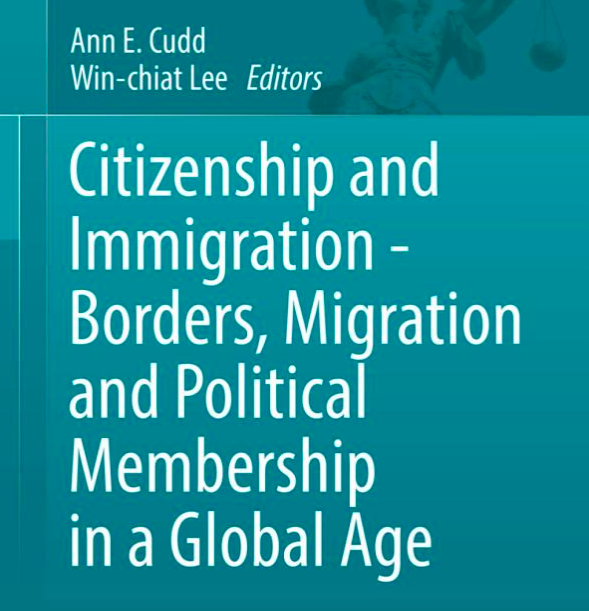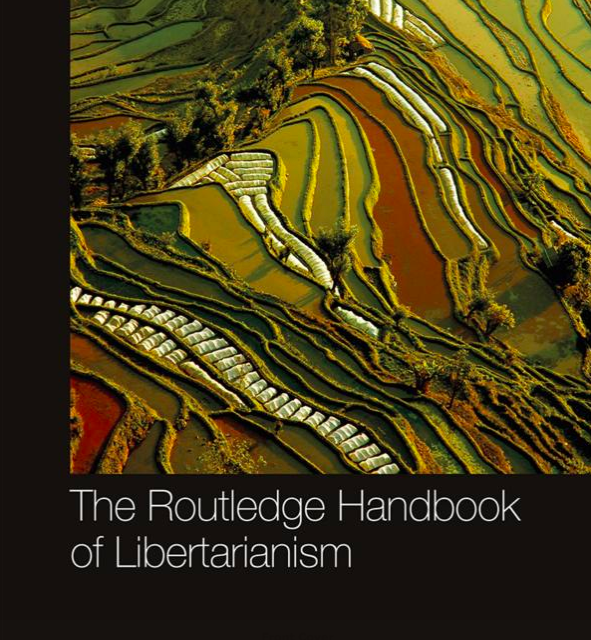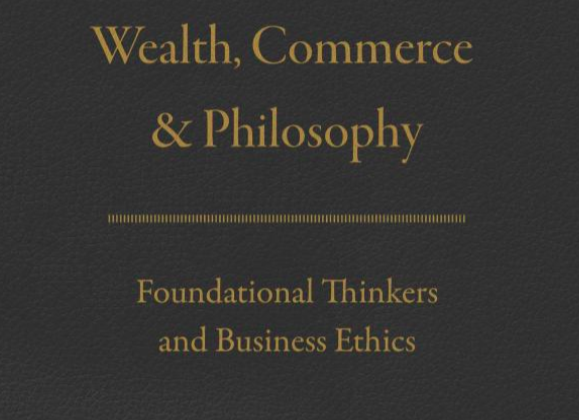Is Capitalism Good For Women? Journal of Business Ethics, May 2014.
This paper investigates an aspect of the question of whether capitalism can be defended as a morally legitimate economic system by asking whether capitalism serves progressive, feminist ends of freedom and gender equality. I argue that although capitalism is subject to critique for increasing economic inequality, it can be seen to decrease gender inequality, particularly in traditional societies.
Commitment as Motivation: Sen’s Theory of Agency and the Explanation of Behavior. Economics and Philosophy, 30 (2014): 35-56
This paper presents Sen’s theory of agency, focusing on the role of commitment in this theory as both problematic and potentially illuminating. His account of some commitments as goal-displacing gives rise to a dilemma given the standard philosophical theory of agency. Either commitment-motivated actions are externally motivated, in which case they are not expressions of agency, or such actions are internally motivated, in which case the commitment is not goal-displacing. I resolve this dilemma and accommodate his view of commitment as motivation by developing a broader descriptive theory of agency, which recognizes both agent goal-directed and goal-displacing commitments. I propose a type of goal-displacing commitment, which I call ‘tacit commitment’, that can be seen to fit between the horns. Tacit commitments regulate behavior without being made conscious and explicit. This resolution suggests a means of bridging the normative/descriptive gap in social-scientific explanation.
Truly Humanitarian Intervention: Examining Just Causes and Methods in a feminist frame. Journal of Global Ethics, Volume 9, Issue 3, December 2013, pages 359-375
In international law, ‘humanitarian intervention’ refers to the use of military force by one nation or group of nations to stop genocide or other gross human rights violations in another sovereign nation. If humanitarian intervention is conceived as military in nature, it makes sense that only the most horrible, massive, and violent violations of human rights can justify intervention. Yet, that leaves many serious evils beyond the scope of legal intervention. In particular, violations of women’s rights and freedoms often go unchecked. To address this problem, I begin from two basic questions: When are violations of human rights sufficiently serious to require an international response of some sort? What should that response be?
A Contractarian Approach to Corporate Bailouts. Georgetown Journal of Law and Public Policy, 11 (2013): 283-300
In this paper, I begin by sketching out the basic political and economic principles that impinge on corporate bailouts as justified by mutual advantage contractarianism, but I do not intend to conclusively defend it as a moral or political theory here. Rather, this paper investigates the implications of mutual advantage contractarianism for the question of whether and when corporate bailouts can be justified. Mutual advantage contractarianism holds that a governmental policy is legitimate if rational persons seeking their own interests would agree to it under conditions in which threats, violence, and fraud are absent. I argue that a policy of offering bailouts to corporations can be justified on this view, but only under certain conditions.
Wanting Freedom. Journal of Social Philosophy. 43 (Winter 2012): 367-385
This paper is about the connection between moral and social freedom, and the ways in which they mutually reinforce and support each other or are incompatible with each other. My thesis is that if we want autonomy (in the broad and rich sense of self-development and creative enrichment that I shall argue for) then we ought to want social freedom (in the sense of supportive, antioppressive, mutually liberating social arrangements), and we ought to want both. For any of us to be free, in the sense of autonomy, we must come to desire and work toward social conditions that support autonomy for all. The problem is that we are easily led not to desire freedom, either in the sense of autonomy or social freedom. I maintain that the taste of freedom in each sense generates an appetite for more freedom in both senses. Hence, if we are to be free we must choose that path which generates the desire for these rich types of freedom.
Introduction Virtual Issue of Hypatia Essays on the Place of Women in Philosophy. Hypatia online Spring 2012
This virtual issue brings together essays published by Hypatia over a twenty year timespan that address the question of women’s place in the profession of philosophy. The issue includes essays about women in the history of philosophy, empirical studies of the numbers of women at various stages in careers in philosophy, analytical essays about why women, including specifically women of color, are not reaching parity with white men in the profession, and essays and reports about what women are doing to change the representation of women in philosophy. The issue highlights the efforts that women have made through the centuries and in the pages of this Journal to demand a place for women as philosophers.
Comments on Charlotte Witt, The Metaphysics of Gender, Symposium on Gender, Race, and Philosophy, 8 (Spring 2012) Posted online at:
In these comments I only very briefly set out the thesis and its argument, in order to draw on the elements of the argument that I think need to be critically scrutinized. I then focus on four aspects to query: first, I offer reasons for skepticism about social individuals; second, I suggest that Professor Witt’s account of persons as self-reflective implies a social self already, which makes social individuals ontologically redundant; third, I briefly investigate whether there are other candidates for the role of “mega social role”; and fourth, I question the engendering function as fundamental to our lives.
The Mentoring Project. Hypatia vol. 27, no. 2 (Spring 2012)
Readers of Hypatia are well aware of the underrepresentation of women in the profession of philosophy. In 2007 Sally Haslanger presented her study of this problem in “Changing the Ideology and Culture of Philosophy: Not by Reason (Alone)” at the Central APA meeting, then published it in this journal (Haslanger 2008) and its claims have become the subject of much discussion in departments and on blogs in the English-speaking philosophical world. In 2009 Haslanger organized the first meeting of a group that has come to be known as the Women in Philosophy Task Force. This group focuses on solutions to the specific problems of implicit bias, sexual harassment, and underrepresentation of women in philosophy, department faculty and student bodies, as well as underrepresentation of women’s work in conferences and journals. During the initial task-force meeting, the authors of this Musing agreed to work together on what came to be known as the Mentoring Project: a mentoring workshop for junior faculty women in philosophy. In this Musing we describe how we designed the mentoring workshop, its aims, what it accomplished, and what we have learned about this kind of effort.
Rape and Enforced Pregnancy as Femicide: Comment on Claudia Card’s “The Paradox of Genocidal Rape Aimed at Enforced Pregnancy”, Southern Journal of Philosophy, XIV (2008): 190-199
Claudia Card’s fascinating paper argues for the claim that military rape that is followed by enforced pregnancy, when pursued as a policy, is a genocidal plan and a form of biological warfare. The paper focuses on the paradoxical sounding question: How can enforcing pregnancy, which guarantees the birth of a child, be at the same time an act of genocide, which is normally defined as the death of a people? In addition to resolving this paradox, Card’s paper offers us more insight into the question of how rape itself can be an aspect of genocide. In this comment paper, I briefly rehash these ideas in order to seek clarification of the notion of social death that she relies on. I will then explore the idea that this special sort of biological warfare might better be described as femicide, as aspects of the global war on women.
Sporting Metaphors: Competition and the Ethos of Capitalism. Journal of the Philosophy of Sport, 34 (May 2007): 52-67
This article examines metaphors that illuminate the competitive aspects of capitalism and its focus on winning but also metaphors that emphasize cooperation and ways that capitalism improves the lives not only of the winners but also of all who choose to play the game by its rules. Although sports metaphors invoked to describe capitalist competition may appear to cast an unflattering light on both capitalism and sport, on a deeper analysis those metaphors appeal to many of us because they reveal a closer resemblance to the Latin root of the word “competition” and its cooperative, pareto-improving implications. Just as healthy competition in sports requires cooperation, healthy capitalism is also, ultimately, a cooperative endeavor. I argue that metaphors imported from and expanded through our experiences of sport reveal many, while concealing other, aspects of capitalism.
Revolution vs Devolution in Kansas: Teaching in a Conservative Climate. Teaching Philosophy, 30 (June 2007): 173-183
This paper is about teaching progressive ideas where fundamentalist and conservative views are prominent among students. I take up two questions: What should we take out task as feminist teachers to be? How should it be carried out? I explore three teaching strategies that a progressive teacher might use in a hostile conservative climate: the whole truth strategy, the dismissal strategy, and the bridge strategy. I reject the first two of these and argue that the third is most likely to be effective and also best exemplifies the value of academic freedom.
Missionary Positions. Hypatia, 20 (2005): 164-182
This essay defends a version of feminist normative political theory, namely, a broadly conceived liberal feminism, against objections that would paralyze progressive intervention. Here, I examine the charges of imperialism and neocolonialism on the one hand, as against ideals of objective and universal human rights on the other. I argue that universal and objective standards of human rights are preconditions for global and postcolonial feminist work to continue, granting that theorists and activists should recognize that the universal may be instantiated in different ways in different communities. I pursue three lines of response to the postmodern and postcolonial objections.
How to Explain Oppression. Philosophy of the Social Sciences, 35 (2005): 20-49
This article discusses explanatory theories of normative concepts and argues for a set of criteria of adequacy by which such theories may be evaluated. The criteria offered fall into four categories: ontological, theoretical, pragmatic, and moral. After defending the criteria and discussing their relative weighting, this article uses them to prune the set of available explanatory theories of oppression. Functionalist theories, including Hegelian recognition theory and Foucauldian social theory, are rejected, as are psychoanalytic theory and social dominance theory. Finally, the article defends structural rational choice theory as the most promising methodology for explaining oppression.
Multiculturalism as a Cognitive Virtue for Scientific Practice Hypatia, 13(1998):43-61 Reprinted in Decentering the Center: Philosophy for a Multicultural, Postcolonial, and Feminist World. Sandra Harding and Uma Narayan, eds. Indiana University Press, 2000. pp 299-317
I argue that science will be better, by its own criteria, if it pursues multiculturalism, by which I mean an ethnic- and gender- diverse set of scientists. I argue that minority and women scientists will be more likely to recognize false, prejudiced assumptions about race and gender that infect theories. And the kinds of changes that society will undergo in pursuing multiculturalism will help reveal these faulty assumptions to scientists of all races and genders.
Strikes, Housework, and the Moral Obligation to Resist. Journal of Social Philosophy 29 (Spring, 1998):20-36
This essay aims to ameliorate the neglect that moral philosophers have shown the topic of resistance to oppression by examining it and the ways in which persons might resist one kind of oppression, and the extent to which an oppressed person is herself obligated to resist. The kind of oppression that I examine in this paper is one in which there is some coercive exploitation of a group, where it is in the individual’s self-interest to participate in an exploitative institution despite the fact that it is exploiting her. These are situations that I have termed “oppression by choice,” meaning that the oppressed choose, in a very real sense of “choose,” to participate in the situation through which they are oppressed. The question that I take up here is this: what are the moral obligations, if any, of those who are oppressed in this way to resist their oppression?
Is Pareto Optimality a Criterion of Justice? Social Theory and Practice. 22 (Spring 1996): 1-34
The first section examines arguments for the pareto criterion from the perfectly competitive market (PCM) model, including the welfare economists’ rationality argument and Gauthier’s impartiality argument. The second section examines arguments for the pareto criterion from Rawls’s original position (OP). In the third and final section I attempt to make the strongest argument for the pareto criterion that avoids these idealizations. Critical examination of this argument shows that it also fails to be robust. However, arguments made on the way lead me to conclude that nonetheless pareto optimality is a progressive regulative ideal in a just society.
Analytic Feminism: A Brief Introduction. Hypatia. 10 (Summer 1995):1-6
This essay introduces the subject of this special issue by offering a characterization of analytic feminism in terms of its context, methods, and problem areas. I argue that analytic feminism is a legitimate subfield both of feminism and of analytic philosophy. I then summarize the problems addressed by the essays of this issue.
When Sexual Harassment is Protected Speech: Hostile Environmental Sexual Harassment Policy in the University. Kansas Journal of Law and Public Policy. 4,1 (Fall 1994):69-81
Freedom of expression and the right to equal opportunity often conflict. In this article I will discuss the conflicts of interest in freedom of expression and freedom from gender discrimination. I argue that under the proper understanding of the First Amendment, hostile environment sexual harassment law would come closer to achieving the goals of both the First and Fourteenth Amendments by fostering the speech of oppressed classes as well as those in the dominant majority, and thus helping to overcome the legacy of inequality and discrimination against women that still affects them today. In light of this conflict between current First Amendment doctrine and equality, I shall argue that colleges and universities have a special responsibility to support the expression of those who would end discrimination and to criticize and remove support from those who would continue it.
Oppression by Choice. Journal of Social Philosophy. 25 (June 1994): 22-44 Reprinted in Practical Ethics. Hugh LaFollette (ed.). Basil Blackwell, 1996.
This paper presents a solution to two related puzzles concerning the nature of oppression: (1) can a social structure be oppressive if the situation that is alleged to be oppressive comes about as the result of the voluntary, informed, rational choice of the allegedly oppressed, and (2) why do oppressed people sometimes appear to join in their own oppression and reinforce it? Although there are several oppressed groups for whom these are interesting questions, I shall focus on the oppression of women, a group for whom these questions are often voiced in the form of accusations or justifications for unequal treatment.
Game Theory and the History of Ideas about Rationality. Economics and Philosophy (April 1993): 101-133
There is a clear trail linking theories of instrumental rationality from Aristotle to the nineteenth-century marginalist economists and ultimately to von Neumann and Morgenstern and contemporary game theorists, that historically grounds game theory as a model of rational interaction. I show how game theory makes a unique contribution to the understanding of instrumental rationality, and that it cannot be subsumed by decision theory. The matter is rather the reverse: game theory incorporates the picture of rationality offered by decision theory and then goes one crucial step further.
Enforced Pregnancy, Rape, and the Image of Woman. Philosophical Studies. 60 (1990): 47-59.
Besides the well known discussions on abortion, another important pro-choice argument is that women as a group are harmed when they are not permitted to control their reproduction. The claim is that the availability of abortion on demand affects the image of woman, as perceived by women themselves, by men, and in social institutions. In this paper I shall make the argument that the image of woman is seriously degraded by enforced pregnancies, and that all women, not only those who become pregnant and must carry a fetus to term against their will, are harmed. Then I draw out the implications of this discussion for the abortion debate.
Conventional Foundationalism and the Origin of Norms. The Southern Journal of Philosophy. 28, 4 (Winter 1990):485-504
In this essay I argue that conventional foundationalism is fundamentally flawed. David Lewis’s account of the origin and maintenance of social conventions is the locus classicus of the rational foundation argument for convention. In this essay I argue that Lewis’s theory must make tacit appeals to pre-existing normative structures. The implication is that convention cannot be the rational foundational basis for theories of language, morals, and agreements.
Sensationalized Philosophy: a Reply to Marquis. Journal of Philosophy. 87 (May 1990):189-197
This essay rebuts Marquis’s initial assumption: that the only important question for settling the abortion issue is the moral status of the fetus, and the corroboration for this claim which he alleges to exist in the abortion literature.
Indefinitely Repeated Games (co-authored with Neal Becker) Theory and Decision. 28 (1990): 189-195
John Carroll argued that there exist only uncooperative equilibria in indefinitely repeated prisoner’s dilemma games. We show that this claim depends on modeling such games as finitely but indefinitely repeated games, which reduce simply to finitely repeated games. We propose an alternative general model of probabilistically indefinitely repeated games, and discuss the appropriateness of each of these models of indefinitely repeated games.
Taking Drugs Seriously: Liberal Paternalism and the Rationality of Preferences. Public Affairs Quarterly. 4, 1 (January 1990): 17-31. Reprinted in Practical Ethics. Hugh Lafollette (ed.) Basil Blackwell, 1996.
In this essay I argue that the infringement of the right to take most drugs is legitimate in a liberal society only under special circumstances, namely those circumstances in which what I call “liberal paternalism” is justified.
Book Reviews
Bottlenecks, A New Theory of Equal Opportunity. Joseph Fishkin. Oxford University Press, 2014
Adaptive Preferences and Women’s Empowerment. Serene Khader. Oxford University Press, 2011. Notre Dame Philosophical Reviews Nov, 2011
Toward a Humanist Justice: The Political Philosophy of Susan Moller Okin. Edited by Debra Satz and Rob Reich. Oxford, 2009. Notre Dame Philosophical Review, 2009
Feminist Interpretations of Locke. Edited by Nancy Hirshmann and Kirstie McClure. Perspectives on Political Science, 2008
Women and Citizenship. Edited by Marilyn Friedman. Oxford University Press, 2005. Notre Dame Philosophical Reviews, 2006
A Defense of Abortion. David Boonin. Oxford University Press, 2004. Ethics, 116, July 2006
The Subject of Liberty: Toward a Feminist Theory of Freedom. Nancy Hirschmann. Princeton, 2002. Notre Dame Philosophical Reviews, 2003
Thinking About Sexual Harassment: A Guide for the Perplexed. Margaret A. Crouch. Oxford, 2000. Philosophical Review, 112, Jan 2003
Economic Analysis and Moral Philosophy. Daniel Hausman and Michael McPherson. Mind, 109, April 2000
Feminist Morality. Virginia Held. Philosophical Review, 104, 1995
Understanding Action: An Essay on Reasons. Frederic Schick. Ethics, April 1993.
Wise Choices Apt Feelings. Allan Gibbard. Auslegung, 1991.





